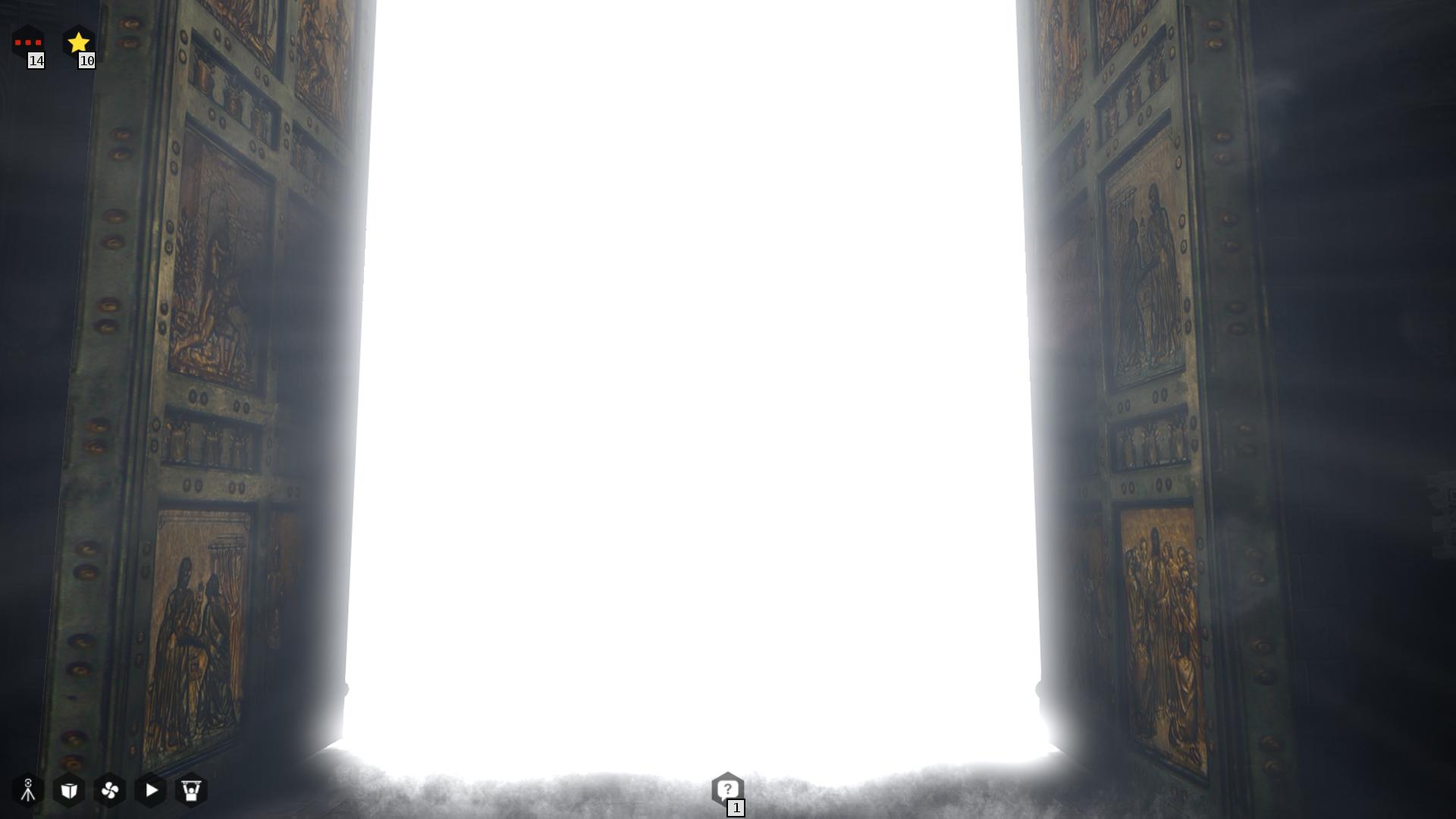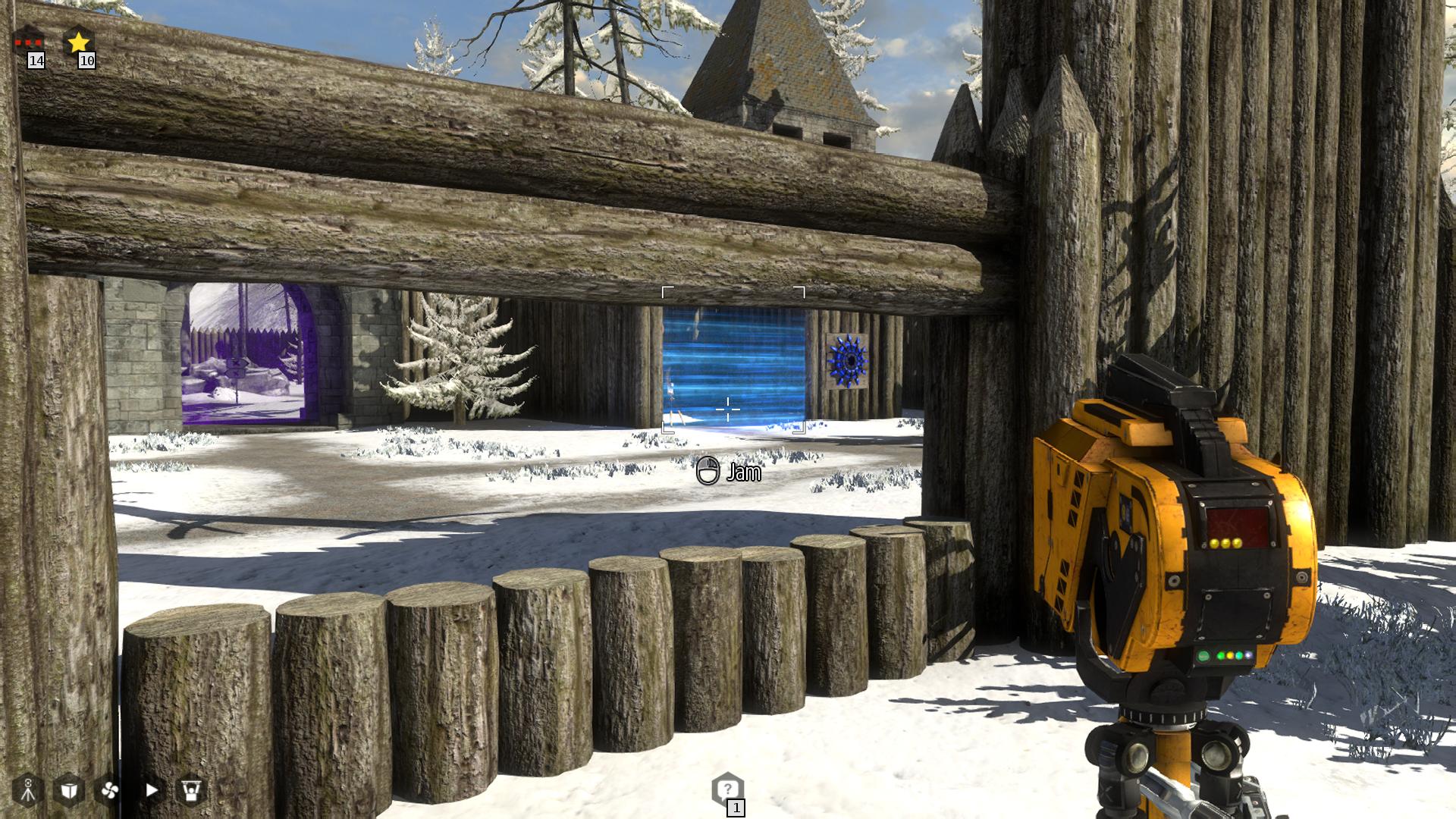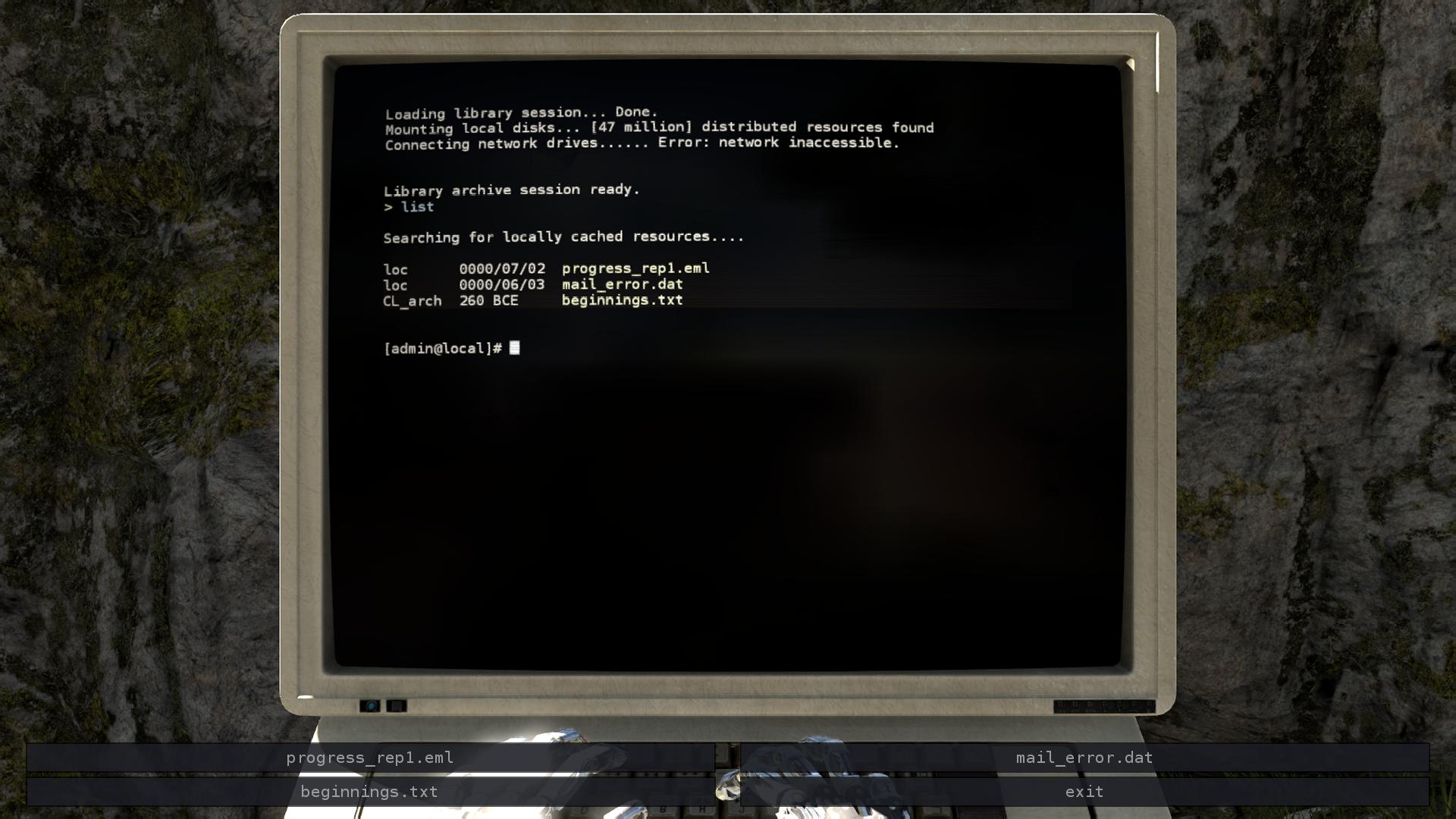The Talos Principle: Arguing Philosophy with Librarians
31 Aug 2015
Lets start this review with something pretty much anyone will tell you: this game is good. It’s good like a ton of other games in my steam list that never got any attention or less than a day of play. This game, I lost sleep over just to finish. Next morning, I had to go back and see what I missed only to find a new part of the game I hadn’t even touched. That’s the sort of good that earns a full recommendation to anyone who likes classic puzzling and arguing philosophy with an AI librarian.
So the first problem you should be aware of is how few puzzle tools you’ll get and how many puzzles you’ll end up solving with the full array of tools. Within the first hub, you’ll get 4 out of 5 locked tools, and the 5th in the second hub, leaving a full hub to do nothing but master those tools. Out of those 5 tools, only two of those feel truly unique. Maybe unique isn’t entirely true, but they feel like the meat of the puzzling tools. To the games credit though, one of those two is available to use from the beginning. This is the only true letdown in the game, but the limited selection and ramping up difficulty does force the player to be clever and fully master this tool set.

The second problem kinda stems from the first, and is also partially a result of the games good points. It feels just a bit too long. By the time I got halfway though the last hub, all I wanted to do was talk to my AI friend and annoy him just a bit more. These puzzles kept getting in the way, and at those point they had become an actual challenge. It’s rare to find a puzzle game that can induce this level of urgency or incentive. This desire to push forward just for story and dialog is clearly why this is sometimes compared to Portal despite the entirely different tone, gameplay, pace, difficulty, innovation in mechanics, AI voice following and prodding you … oh wait, not that.
So that brings us to the story, which is the glorious golden thread that ties this whole thing together and makes it shine. As I’ve already said, it’s why I couldn’t put the game down even after it had run out of new tricks. Now that’s not to say all the story is pure gold considering how many unrelated text documents there were and how little patience and brain space I had left. There may have been some amazing subplots going on expressed through the unnecessary text documents, but after the first hub, they were just something to click off for sake of completion. Thankfully the most important subplot thread was in the form of audio logs. Aside from the voice from on high, this is the only non-text story you’ll be getting so enjoy them when you find them.
The finale is satisfying enough to shake the player out of the lull of checking off rooms on a list, but hard to get into without spoiling anything, so I’ll just keep this general. There’s a new mechanic, a time limit, some nicely designed obstacles, the big reveal, an Em Knight Shamalamadingdong, and maybe a cat or not. The long build up pays off, and the junk text files you get from every terminal will most likely continue to be ignored after the first 30.

There’s more to say about secrets, the good art direction, the Easter eggs, the exploration, the sound design, and all that stuff, but to me that’s just icing. The best thing I can tell you about this game is that the cake is delicious and plentiful and filled with robot bits and philosophy. Like all good birthday cakes should be. Just do yourself one favor when playing - don’t go in like a completionist. There’s enough secrets and stars to wear you out by the halfway mark. You can go back to any puzzle at any time and hunt for them later.
Buy The Talos Principle on Steam.